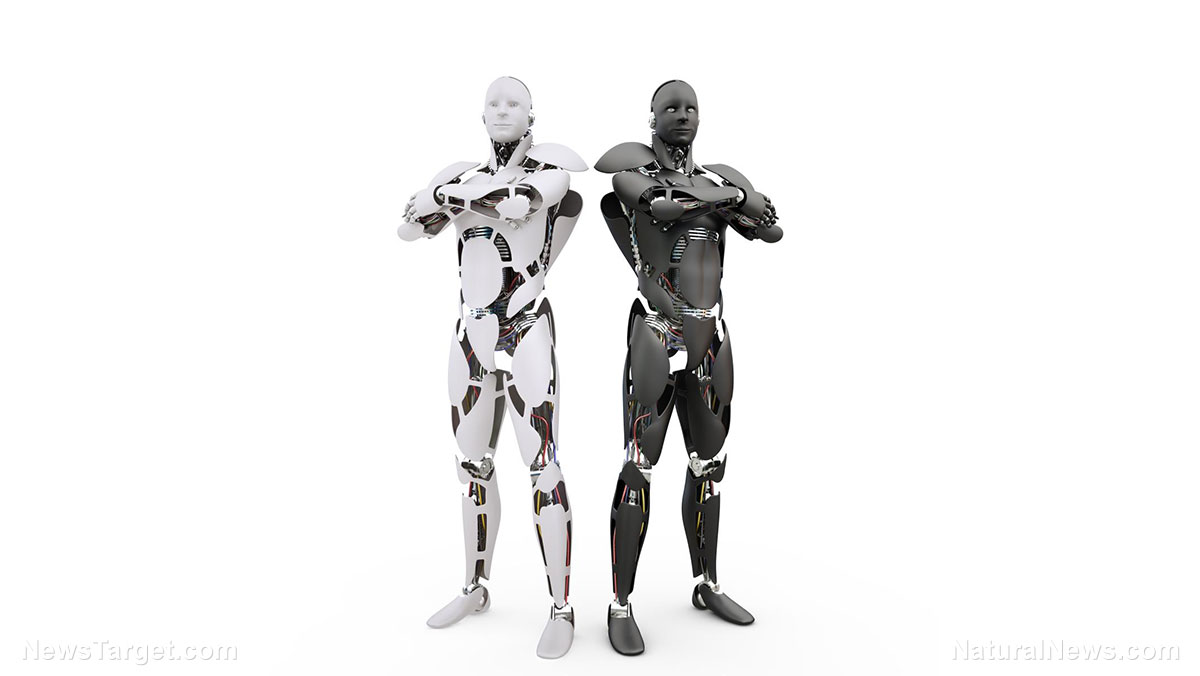04/08/2019 / By Lance D Johnson

Simon Watson, a lecturer in Robotic Systems at the University of Manchester makes a compelling case for humans to give up their inhibitions, relinquish their “illusions” of control, and trust robots with what they are designed to do. He says people are already under the “illusion” that they are in control, and although he may be right to some degree, not many people are keen on giving up on the idea of free will.
Watson is calling on society to give up its free will and let artificial intelligence think, choose, and otherwise make life more efficient for humans. He is calling for an end to human discernment, so that automated machines can make more tough decisions and rule different aspects of our lives. Full trust in robots will push aside human judgment and empathy, de-prioritizing human choice, ethical decision-making processes, while ushering in automated decision-making throughout society.
Watson believes automated control increases safety, reducing the number of accidents that would occur if humans were in the driver’s seat. But when people give up control over their free will and blindly submit to technology, they give away parts of their humanity, their spontaneity, and connection to one another. The thrill of the adventure is replaced with algorithms of control. Metaphorically, should we sit idly, we would be allowing a robot’s hand to grasp our wrist and guide us along, telling us what to do.
He is right: When faced with tough decisions, humans are unpredictable. Under duress, humans don’t always make the most ethical decisions. A person’s actions are shaped by unique experiences throughout their life. With 7.6 billion people sharing the planet, the unpredictability of human decision-making in everyday life is multiplied. There are no guarantees. He has a point: Each person may be under the illusion that they are in control as everyone’s decisions impact one another.
But it’s this interconnectedness and unpredictability that makes life worth living. Why would the unpredictable nature of human decision-making (described by Watson) make it easier for society to openly accept robot control?
Artificial intelligence will inevitably learn from human interaction, input, and programming, too. It’s the evil nature of humans that will ultimately be mirrored by artificial intelligence in the most efficient manner. That is why humans should never relinquish control to robots and should hold an ethical standard and dominion over machines.
Oversight and accountability are absolutely necessary if artificial intelligence is going to be a part of our lives. Weaponized systems pose the most serious threat. Artificial intelligence could perform evil deeds in the most efficient ways possible. In the end, artificial intelligence has no soul and can be replaced and replicated; whereas, human life is sacred. Wickedness can hide behind the actions of machines; weaponized machines could bring about the most efficient way to exterminate human life to engineer a planet with a “desirable” population number. Weaponized AI could ultimately be used to bring about the most “desirable” traits in humans (eugenics). (Related: Experts warn robots are growing in consciousness and should be classified as an invasive species.)
This is not science fiction, but a daunting reality faced by everyone who is now responsible for holding artificial intelligence accountable. We cannot simply put our full trust in robot technology just because humans are imperfect, unpredictable and less calculated. It’s the imperfections of human nature that make life interesting, adventurous and purposeful. Only humans can be moved by the power of compassion, empathy, and love. When automation takes control of every aspect of our lives, life itself will be drained from humans. As humans take a back seat to robots, what could become of our connection to one another? If we were to let robots take control, just to eliminate human error, will we throw away the experiences in life that bring us purpose?
In our effort to annihilate our brokenness as humans, will we lose our greatest gift – the purpose that comes from the pain? In our desire to automate everything, will we lose our soul?
Sources include:












